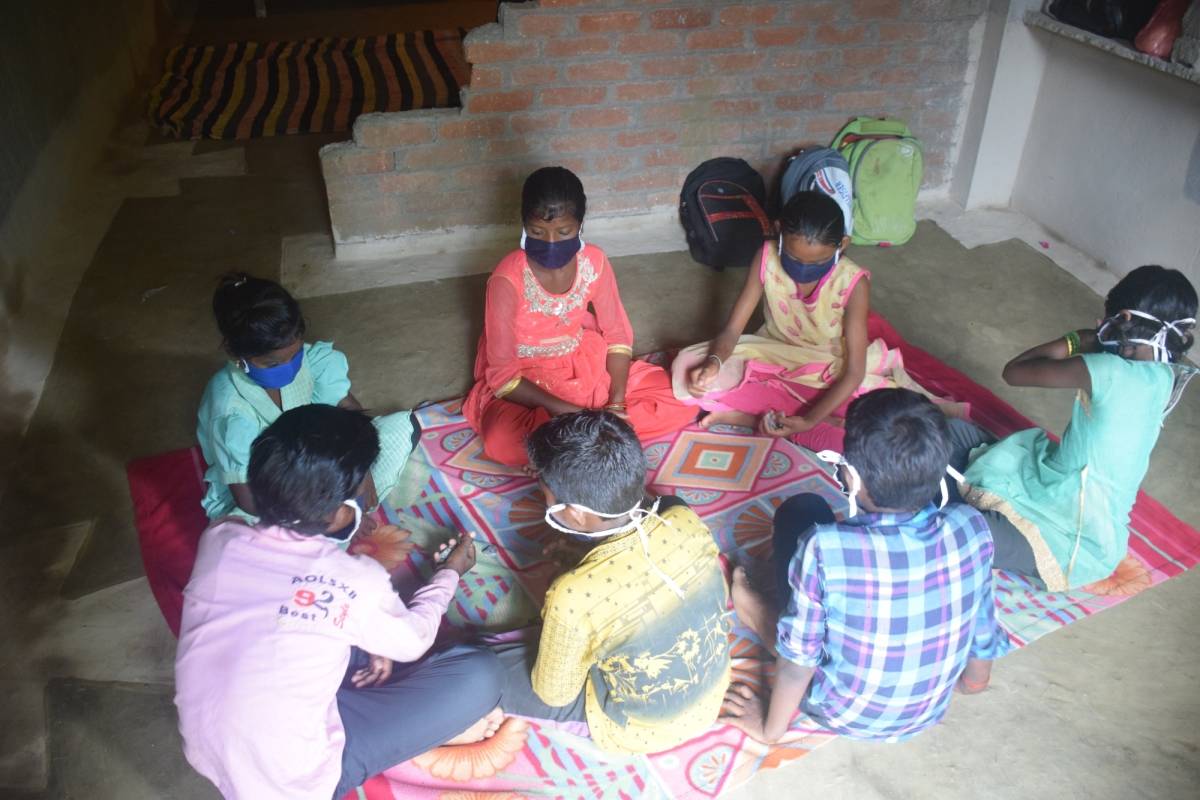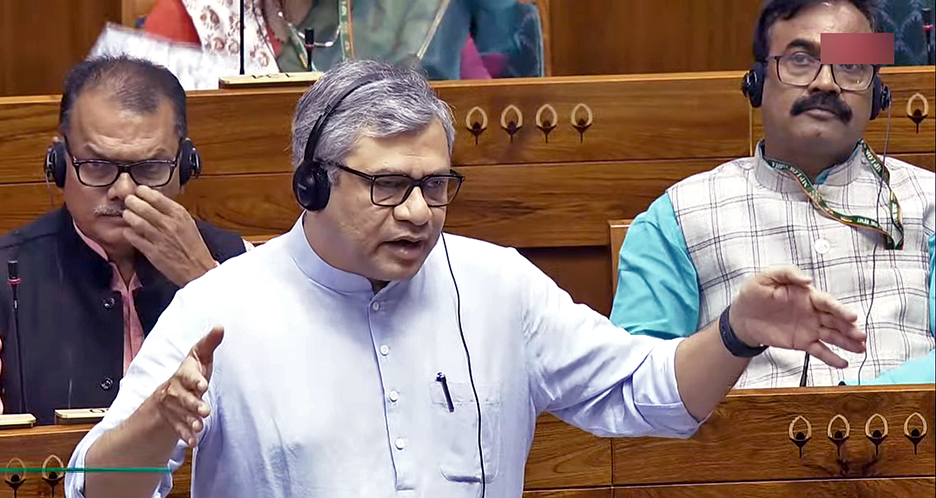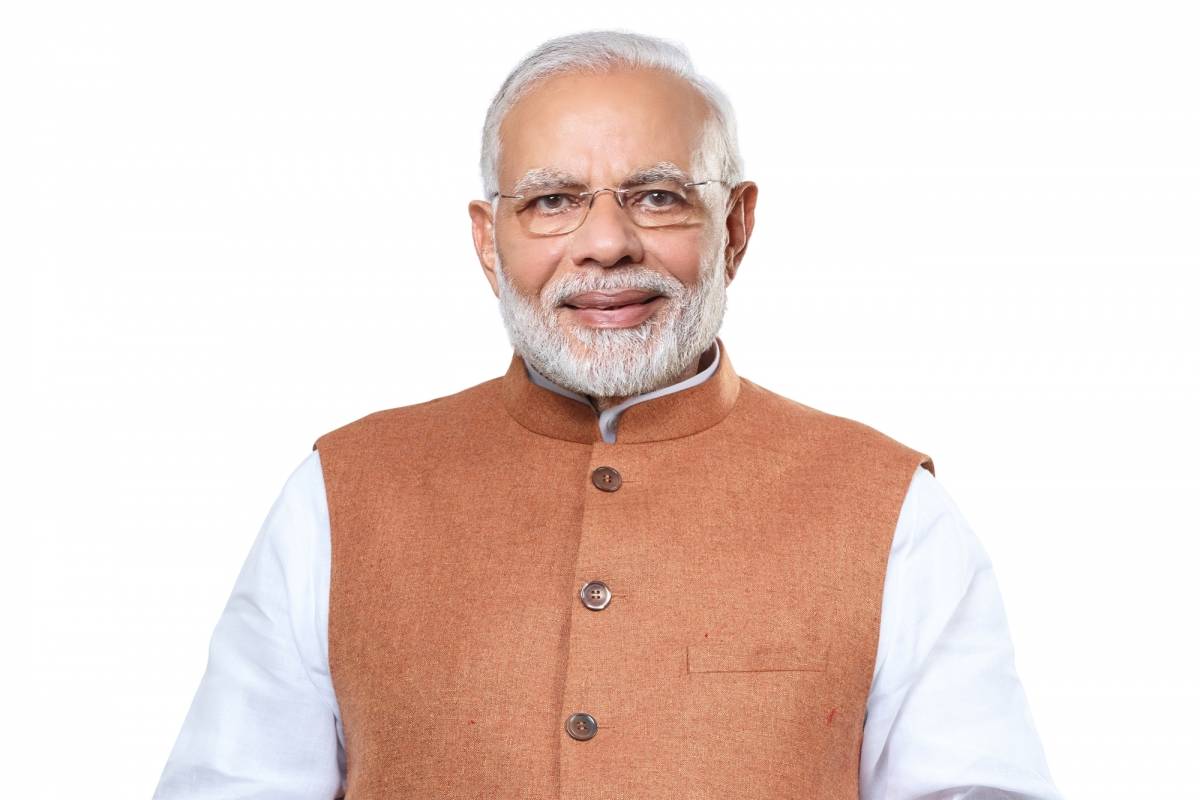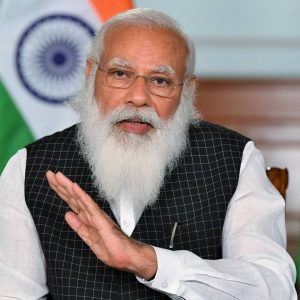Experts fear that the social transformation that has been happening in these two decades leading to an increase in female literacy will be reversed as girls drop out of school…reports Shuchita Jha
The pandemic has resulted in millions of casualties worldwide, while in the Indian heartland it has brought death to the dreams of education nursed by thousands of children, and especially young girls.
“I do not know what to do anymore,” sobbed one former student, who at the tender age of 16, had to give up her education in exchange for childbirth and an abusive marriage.
She was a bright student who scored 85 per cent marks in her Class 10 Board exams. But the girl’s mother, a single parent, took advantage of the lockdown and the lull in her education to get her married off to a much older man last year.
“The man soon started harassing the girl, physically and sexually, and she conceived,” Archana Sahaye, director of Childline, Bhopal said.
“She is a teenager, and her body is still developing, but despite this, she was forced to have a baby, and her in-laws did not even give her food during her pregnancy. She became highly anaemic. It was then that someone informed her mother of her plight. She came to us for help but by the time we rescued the girl, she was in her seventh month of pregnancy, and very fragile. Had there been a further delay, the doctors said they wouldn’t have been able to save her,” she added.
The teenager gave birth to a daughter in July and is now trying to get her marriage annulled with the help of Childline and the Women and Child Development Department. “We have filed an application in court and the procedure has started. Had she been allowed to continue her studies, the girl would have had a brighter future,” Sahaye added, explaining that the girl’s former school principal has assured her that she will be given admission once she recovers from her delivery.
Such is the condition of many girls even in the capital city of Bhopal. The girl students have had it worse, as the parents refuse to prioritise their education for want of smartphones and an internet connection for online classes. They choose the easier option of grooming the girls for domesticity and marrying them off in order to have one less mouth to feed.
Safeena Husain, the founder of Educate Girls, explains, “With families staying at home amid economic hardships, incidences of domestic violence, drunk behaviour and child abuse have increased. If this persists, the risks of child marriage, physical and sexual exploitation of girls, trafficking, unhygienic and unhealthy lifestyle will continue to drastically surge. Stuck in this situation, girls will continue to lose confidence and feel demotivated to return to mainstream education, further pushing them into deeper vulnerability. It is now critical to have measures in place to get them back to school.”
Experts fear that the social transformation that has been happening in these two decades leading to an increase in female literacy will be reversed as girls drop out of school. The literacy rate of women in MP had increased to 59.24 per cent in the 2011 census from 50.29 in 2001.
While the school dropout rate of girls in MP was 24.4 per cent in the year 2017-18, experts suspect a sharp rise in the dropout rate for 2020-21, as scores of girls were forced out of schools to help their families with domestic chores, sent to work for financial support, or married off as minors.
“School was a socially acceptable reason for parents from marginalised and financially weaker sections of the society to send their daughters out of the home. In the absence of this, while boys continue to be exposed by going out to play with their friends, girls are getting left behind. If this continues for longer, the progress that has happened, will get reversed as social transformation of girls will take a back-seat and maintaining the status quo will become the norm, pushing them further into illiteracy,” said Gourav Jaiswal, core team member of Shiksha Satyagrah in Seoni, Madhya Pradesh.
This is reflected in the sharp rise in the rate of child marriages in the state – to the tune of 26 per cent – in the aftermath of Covid. The Women and Child Department had stopped 196 child marriages in the 2019-20 period, while the number rose to 720 in 2020-21.
According to a report released by Child Rights and You (CRY) in October 2020, compiled with help from Census 1991, 2001 and 2011, and the latest National Family Health Survey (2015-16), as many as 11,93,171 children in MP, aged 10-19, were married off in 16 years. Of these, 8,60,332 were girls.
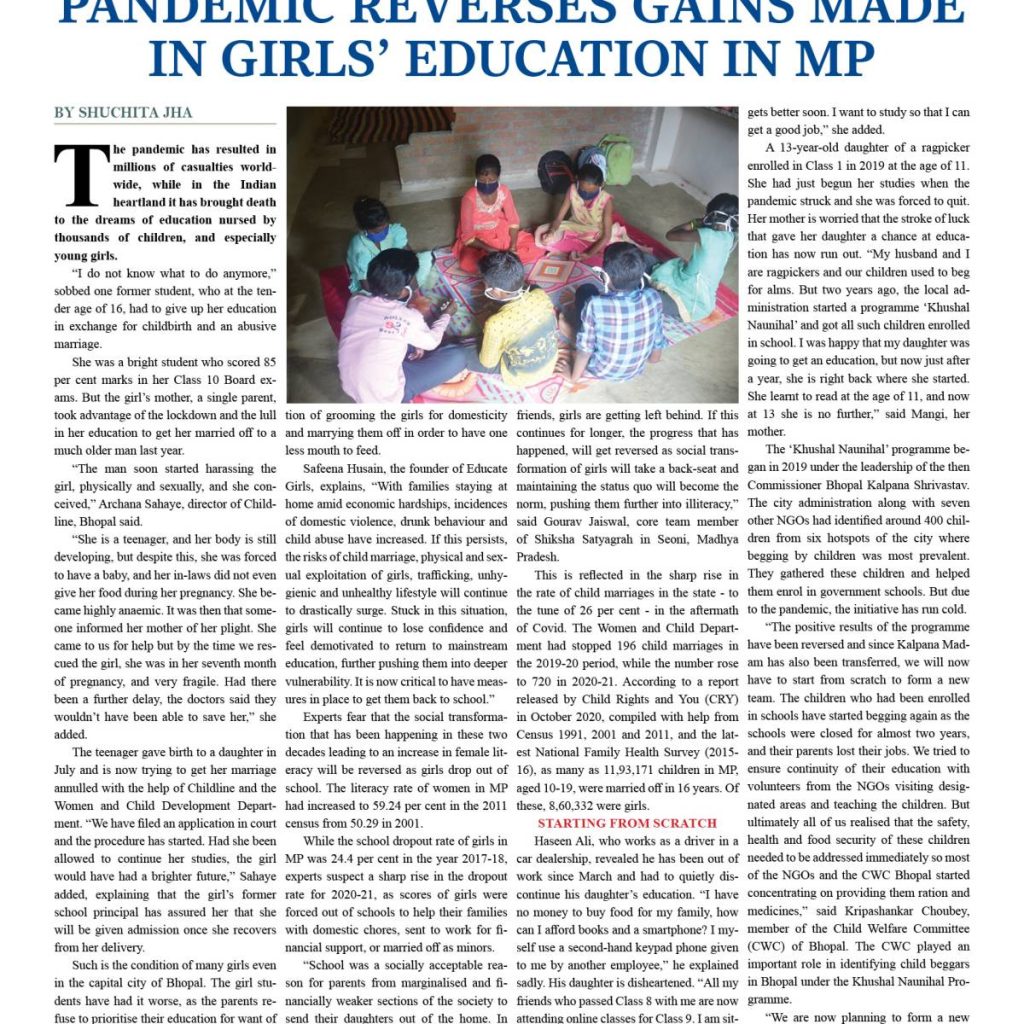
Starting from scratch
Haseen Ali, who works as a driver in a car dealership, revealed he has been out of work since March and had to quietly discontinue his daughter’s education. “I have no money to buy food for my family, how can I afford books and a smartphone? I myself use a second-hand keypad phone given to me by another employee,” he explained sadly.
His daughter is disheartened. “All my friends who passed Class 8 with me are now attending online classes for Class 9. I am sitting at home, doing nothing. I feel wretched,” she said. “I hope my father’s situation gets better soon. I want to study so that I can get a good job,” she added.
A 13-year-old daughter of a ragpicker enrolled in Class 1 in 2019 at the age of 11. She had just begun her studies when the pandemic struck and she was forced to quit. Her mother is worried that the stroke of luck that gave her daughter a chance at education has now run out. “My husband and I are ragpickers and our children used to beg for alms. But two years ago, the local administration started a programme ‘Khushal Naunihal’ and got all such children enrolled in school. I was happy that my daughter was going to get an education, but now just after a year, she is right back where she started. She learnt to read at the age of 11, and now at 13 she is no further,” said Mangi, her mother.
The ‘Khushal Naunihal’ programme began in 2019 under the leadership of the then Commissioner Bhopal Kalpana Shrivastav. The city administration along with seven other NGOs had identified around 400 children from six hotspots of the city where begging by children was most prevalent. They gathered these children and helped them enrol in government schools. But due to the pandemic, the initiative has run cold.
“The positive results of the programme have been reversed and since Kalpana Madam has also been transferred, we will now have to start from scratch to form a new team. The children who had been enrolled in schools have started begging again as the schools were closed for almost two years, and their parents lost their jobs. We tried to ensure continuity of their education with volunteers from the NGOs visiting designated areas and teaching the children. But ultimately all of us realised that the safety, health and food security of these children needed to be addressed immediately so most of the NGOs and the CWC Bhopal started concentrating on providing them ration and medicines,” said Kripashankar Choubey, member of the Child Welfare Committee (CWC) of Bhopal. The CWC played an important role in identifying child beggars in Bhopal under the Khushal Naunihal Programme.
“We are now planning to form a new team to start this programme again as soon as the pandemic ends,” he added.
This has been the case with others who have been trying to bring the focus back to education. They have had to confront the harsh reality of life during the pandemic and move back to square one. For example, the Madhya Pradesh Commission for Protection of Child Rights and the Childline tried to keep students in touch with the practice of learning and keep them from forgetting what they studied so far. They purchased the books and notebooks for the students and the staff, along with a few volunteers, used to teach them over short periods of time at Bhopal Childline’s TT Nagar headquarters. “We distributed books to the children who live in the nearby slums and told them to come to us if they find something difficult to understand. We just want to ensure they do not go blank when they start school again,” said Sahaye.
They expected schools would reopen soon and wanted to institute a stop-gap measure. But as days passed more challenges arose and they had to start channelling their funds and resources into ensuring food security of children in slum areas and in financially weaker families. The initiative had to be sidelined.
Now that schools have started again, many of these NGOs and government bodies are having to go back to the drawing board about how to bring back the children who have once again been left behind.
ALSO READ-Terror-taint to education hub: How Sahyl changed a locality’s image


